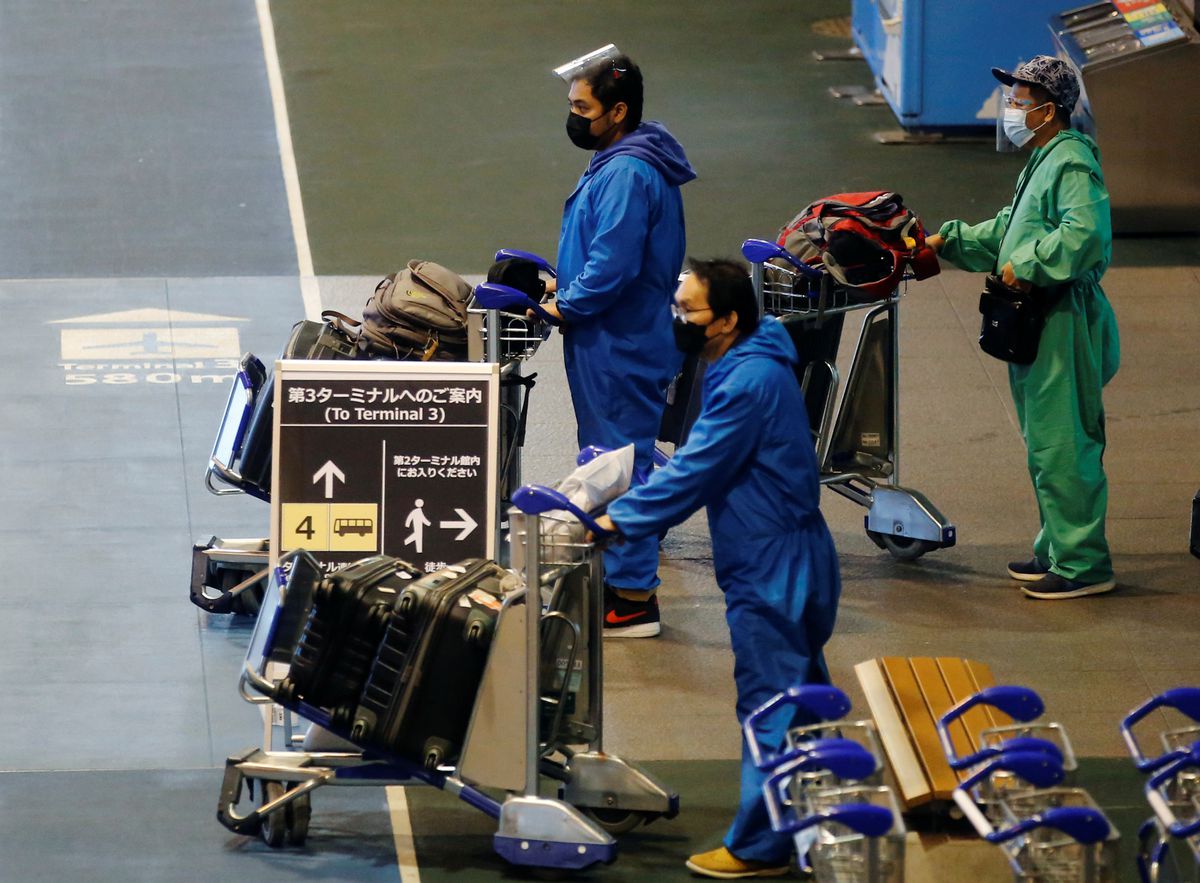Japan's flag airlines halted new reservations on Wednesday and the government widened a travel ban amid escalating alarm over Omicron after a second case of the coronavirus variant was detected in the country.
Japan Airlines Co and ANA Holdings Inc said they were suspending new reservations for international flights to Japan until the end of December. The move came at the request of the transport ministry, which has also requested foreign airlines to halt to all such reservations.
Japan took some of the strictest steps globally on Monday by closing its borders to new foreign entrants for about a month in light of the emergence of Omicron. A day later, Japan's first Omicron case was discovered - a Namibian diplomat who arrived in the country on Sunday.
A second case was found in a male traveller in his 20s coming from Peru who landed at Narita International Airport on Saturday, the health ministry confirmed.
The government said it will prevent the reentry of those with residency status travelling from 10 southern African states from midnight on Wednesday for at least a month.
The restrictions apply to Japan residents coming from South Africa, Eswatini, Namibia, Zambia, Malawi, Mozambique, Lesotho, Angola, Botswana and Zimbabwe.
"From the view of prevention, we won't just restrict new entry by foreigners but also returning foreigners with resident status, unless there are special extenuating circumstances," Chief Cabinet Secretary Hirokazu Matsuno told a news conference.
"We will maintain a sense of urgency and keep track of the situation in various countries to be able to respond quickly and flexibly."
Regarding other passengers on the plane with the Namibian diplomat, he said none of the 70 people designated as close contacts and currently observing quarantine had shown signs of falling ill.
Health Minister Shigeyuki Goto later said his ministry was in contact with local governments to keep an eye on the fellow passengers.
Japanese border measures were loosened slightly a few weeks ago, but all of those changes have been rolled back in a move generally applauded by the public and accepted by business leaders, although some sectors of the economy dependent on foreign trainees could be hit if the closing is extended.


















































